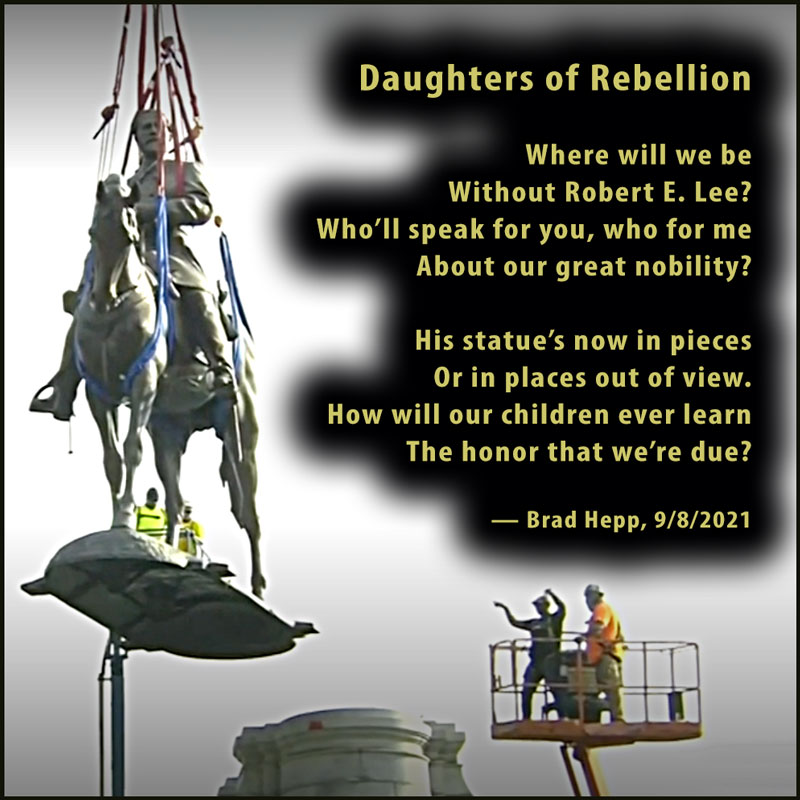
Commentary
This one is likely to lose me some “friends.” It is sarcastic and appeals to a sense of justice that not all share.
Whenever I see the complaint that removal of Confederate monuments will result in people not being able to learn history, I just about lose it. People who object to removal of Confederate monuments would NEVER object to the removal of statues to Saddam Hussein in Iraq. Those people would NEVER have said, “If our Marines take down statues to Saddam Hussein, how will the Iraqi people learn history?!” Why would they appeal to the “history” argument in the one case, but not in the other? Ask them. I suspect that if they’re honest they’d tell you that they’re proud of their Confederate history. In my opinion, they should be ashamed of it.
I used to defend the “States’ Rights” cause of the South.* Regardless of the extent to which States’ Rights was the real motivation for the South’s rebellion, it doesn’t fly with me anymore. RIGHTS. First of all, that’s not what followers of Christ should dedicate themselves to obtaining or retaining for themselves. See Philippians, chapter 2. In Augustine’s “Confessions” he asked, “How do I know that God is changing me, that I have made progress?” His answer: “I have learned to give up my rights.”
Securing rights for others? Well that’s surely more justified for the follower of Christ. But in the case of the Confederacy, the “rights” that the Rebels fought for was the “right” to enslave, to oppress. That’s certainly not the kind of right a follower of Christ should secure. No, that “right” is just wrong.
This poem was prompted by today’s headlines.
*”States’ Rights” is something I still hold to at a conceptual level in that I prefer decentralization of power. But when decentralized power uses its rights to cause harm (e.g., slavery), something higher kicks in. How would one define that higher principle?
“Change” Poems:
Previous: Please All-Powerful God
Next: Reductionist
